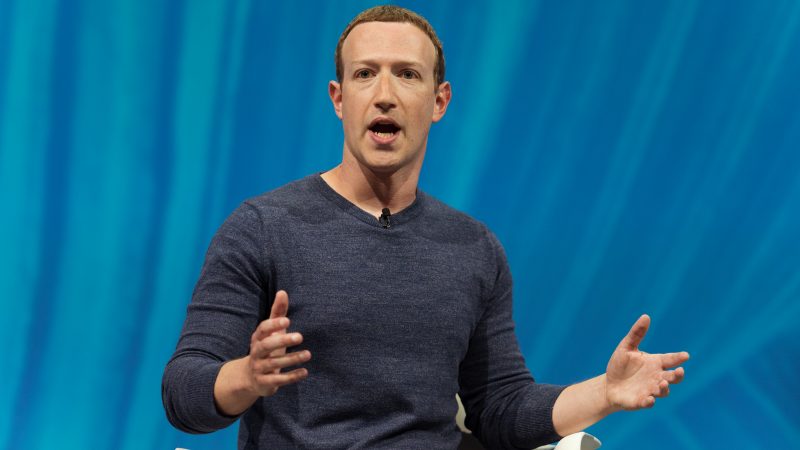
“…the phrase “the real world” is interesting. I think that there’s a physical world and there’s a digital world, and increasingly those are being overlaid and coming together, but increasingly the real world is the combination of the digital world and the physical world and that the real world is not just the physical world. That is an interesting frame to think about this stuff going forward.” – Mark Zuckerberg on the metaverse, 2021
As the online safety bill slowly makes its way through parliament, new Culture Secretary Nadine Dorries has warned “Mark Zuckerberger [sic]” to “stay in the real world”, and not “take off into the metaverse” (his brand of recreating the physical world online). She claims the bill will “end abuse, full stop”.
Unfortunately, these measures are more like cleaning sewage out of rivers than stopping water companies spewing it in in the first place. The bill attempts to prevent the exposure to harmful content, not prevent the creation of harmful content. Poorly defined exceptions for ‘journalistic content’ point to big loopholes and costly legal challenges ahead. The act of harmful content creation – Nazi chatbots and AI-generated pornography of real people – is left unaddressed and remains legal, as it always has been.
Social media doesn’t just amplify voices, but enables the creation of toxic content by removing natural barriers to publication. Anonymity and the lack of penalties from saying something socially unacceptable encourage a very different sort of behaviour online. A 2021 poll showed that 72% of those receiving abuse online got it from anonymous accounts. This is acknowledged but not understood, so the proposals in the draft online safety bill end up looking like sticking plasters attempting to hold together a chasm splitting apart our society.
The premise behind the metaverse – treating virtual worlds as real – is not new, despite Zuckerberg’s marketing gloss. It has existed ever since kids went to school in the day and came home at night to continue their social existence on Facebook, Instagram and video game platforms. Morning comes and they seamlessly continue their chattering. Teachers responsible for pastoral care are now missing half the data they used to have to understand student interactions. They can still see bad behaviour in their classrooms, but are totally blind to online bullying, which can sadly lead to suicide. Last year, 764,000 children aged between ten and 15 reported being bullied online, including 550,000 who were bullied during school hours.
There will never be another generation of British children for whom the physical world – the world of playgrounds, libraries and after school clubs – is the only world. Outdoor space competes heavily for attention with online space, something our councils struggle with as they try to revitalise communities. If Dorries is only thinking about the metaverse now because she is worried about what Mark Zuckerberg will do with it, then I am sorry to say that she is a whole Generation Z too late, and a whole Generation Z has already grown up under his influence and his decisions.
What happens online reaches far beyond DCMS. Dangerously for Labour’s political chances, if the party cannot prove that it genuinely understands what causes modern crime and community change, its rhetoric on modernisation will dissolve quicker than a raccoon’s candyfloss in a viral internet video. Our recent campaign leaflets restate “tough on crime, tough on the causes of crime”. But if we’re solving the causes of ’90s crime, we’re 30 years out of touch.
Access to drugs via the dark web. The proliferation of petty theft caused by dubious online marketplace vetting. New crimes like upskirting and the sharing of explicit images online. Social validation, unfettered access and an irrepressible new economics drives this generation of crime, and as always it’s the most vulnerable who are hit the hardest.
Our approach must be coordinated across the shadow cabinet. If Online is still treated in policy terms as an adjunct, an appendix, to what happens offline, we ignore all of online business, online politics and online life. As I wrote in a Fabian Society pamphlet last year, we are still only beginning to understand critical concepts such as the economics of data. This understanding is needed to sensibly break up social media monopolies. A simple windfall tax won’t do this time.
To meet our promises on online harms and crime, Labour must see where virtual bleeds into physical. To offer a radical modernisation, Labour must straddle both old and new. To hear the beating heart of modern Britain, Labour must live and breathe Online.




More from LabourList
Welfare vote: ‘Here are the failures it reveals – and three faint silver linings’
Welfare vote: Which Labour MPs voted against bill or backed new amendment?
‘Welfare reforms still mean a climate of fear. Changes are too little, too late’